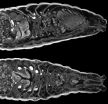(Press-News.org) Athens, 17 May 2014: Sleeping pills increase the risk of cardiovascular events in heart failure patients by 8-fold, according to research from Japan. The study was presented today at the Heart Failure Congress 2014, held 17-20 May in Athens, Greece. The Congress is the main annual meeting of the Heart Failure Association of the European Society of Cardiology.
Dr Masahiko Setoguchi said: "Sleeping problems are a frequent side effect of heart failure and it is common for patients to be prescribed sleeping pills when they are discharged from hospital. They also have other comorbidities and may be prescribed diuretics, antiplatelets, antihypertensives, anticoagulants and anti-arrhythmics."
He added: "Cardiac function of heart failure patients worsens with repeated hospitalisations. We therefore decided it was important to investigate the relationships between drugs prescribed at discharge, rehospitalisation and cardiovascular events in heart failure patients."
The researchers retrospectively examined the medical records of 111 heart failure patients admitted to Tokyo Yamate Medical Center from 2011 to 2013. Information was collected on the presence of coexisting cardiovascular and other medical conditions, medications administered during hospitalisation and those prescribed at discharge, laboratory test results, electrocardiogram, echocardiogram and chest radiographic data and vital signs at admission and discharge.
Study participants were followed up for 180 days after they were discharged from hospital. The study endpoint was readmission for heart failure, or cardiovascular related death.
For the analysis, patients were divided into those who had heart failure with preserved ejection fraction (HFpEF) and those who had heart failure with reduced ejection fraction (HFrEF). Dr Setoguchi said: "Management and prognosis can vary between patients with HFpEF and HFrEF so we analysed the two groups separately."
Of the 47 HFpEF patients, 15 reached the study endpoint during the 180 day follow up period. The only differences between patients who had events and those who did not were prescription of sleeping pills (benzodiazepine hypnotics), blood sodium levels at admission and blood haemoglobin levels at discharge.
Multivariate analysis showed that HFpEF patients who were prescribed sleeping pills were at eight times greater risk of rehospitalisation for heart failure or cardiovascular related death than HFpEF patients who were not prescribed sleeping pills (hazard ratio [HR]=8.063, p=0.010).
Dr Setoguchi said: "Our study clearly shows that sleeping pills dramatically increase the risk of cardiovascular events in patients with HFpEF. The finding was consistent across univariate and multivariate analyses. Given that many heart failure patients have difficulty sleeping, this is an issue that needs further investigation in larger studies."
Of the 64 HFrEF patients, 24 reached the study endpoint during follow up. Multivariate analysis showed that HFrEF patients who were prescribed high blood pressure medications (ACE inhibitors or angiotensin receptor blockers) had less than one-quarter the risk of cardiovascular events compared to HFrEF patients not prescribed these drugs (HR=0.234, p=0.012).
Dr Setoguchi said: "The main finding of our study is that HFpEF patients prescribed sleeping pills have an increased risk of cardiovascular events. The number of HFpEF patients is increasing and becoming a larger proportion of heart failure patients overall. Our results therefore are of growing relevance to heart failure patients and the professionals who treat them."
He added: "Benzodiazepine hyptonics may have cardiodepressant actions. They may also exert respiratory depressant actions which could exacerbate sleep disordered breathing and lead to a worse prognosis."
Dr Setoguchi concluded: "Our results need confirmation in larger, prospective studies before heart failure patients can be advised to stop taking sleeping pills. But HFpEF patients who use sleeping pills, particularly those who have sleep disordered breathing, should be carefully monitored."
INFORMATION:
References
Please see the details of the session here: http://spo.escardio.org/SessionDetails.aspx?eevtid=68&sessId=13504&subSessId=3259#.U2tGl_1XKC4
The abstract can be found in the press kit on site or should be requested at press@escardio.org
Notes to editor
About the European Society of Cardiology
The European Society of Cardiology (ESC) represents more than 80 000 cardiology professionals across Europe and the Mediterranean. Its mission is to reduce the burden of cardiovascular disease in Europe.
About the Heart Failure Association (HFA)
The Heart Failure Association (HFA) is a registered branch of the ESC. Its aim is to improve quality of life and longevity, through better prevention, diagnosis and treatment of heart failure, including the establishment of networks for its management, education and research.
For practical information about heart failure aimed at patients, families and caregivers, visit the HFA's Heart Failure Matters website.
Did you want to tweet about our congress? - if you do, please use the official #heartfailure2014 hashtag! Thank you
Information for journalists attending Heart Failure 2014
If you have any question or request regarding interview opportunities, please contact:
ESC Press Office
Jacqueline Partarrieu
press@escardio.org
Tel: +33 6 22 83 45 76 (off site support number)
Heart Failure 2014 takes place in Athens, Greece, on 17-20 May 2014 at the MAICC Congress Center.
Look here for the current final programme:
http://www.escardio.org/congresses/heart-failure-2014/Documents/fp-hf2014-web.pdf?hit=highlight-on
For full details of a session, have a look at the Scientific Programme & Planner:
http://spo.escardio.org/default.aspx?eevtid=68&showResults=False
On-site Press registration process:
Free registration applies to press representatives upon receipt of valid credentials and a fully completed embargo form.
Credential: either your ID press card or letter of assignment with proof of 3 published articles
Press registration is not available to Industry or its Public Relations representatives, event management, marketing or communications representatives
The decision of the ESC Press Office is final regarding all press registration requests.
When your registration as press will be validated you will be given a press badge and the press kit.
The press working area is located in front of the registration desks. It features free wifi and a printer linked to a computer.
Sleeping pills increase CV events in heart failure patients
2014-05-17
ELSE PRESS RELEASES FROM THIS DATE:
The Lancet Infectious Diseases: New early warning system predicts dengue fever risk during the soccer World Cup in Brazil
2014-05-17
For the first time, scientists have developed an early warning system to predict the risk of dengue infections for the 553 microregions of Brazil during the football World Cup. The estimates, published in The Lancet Infectious Diseases, show that the chance of a dengue outbreak is enough of a possibility to warrant a high-alert warning in the three northeastern venues (Natal, Fortaleza, and Recife) but is likely to be generally low in all 12 host cities.
Dengue is a viral infection that is transmitted between humans by Aedes aegypti mosquitoes. In some cases, it causes ...
Watching HIV bud from cells
2014-05-17
SALT LAKE CITY, May 16, 2014 – University of Utah researchers devised a way to watch newly forming AIDS virus particles emerging or "budding" from infected human cells without interfering with the process. The method shows a protein named ALIX gets involved during the final stages of virus replication, not earlier, as was believed previously.
"We watch one cell at a time" and use a digital camera and special microscope to make movies and photos of the budding process, says virologist Saveez Saffarian, an assistant professor of physics and astronomy and senior author of ...
MicroRNA that could be used to suppress prostate cancer progression found
2014-05-17
CINCINNATI—About one in seven men will develop prostate cancer over the course of a lifetime, and about one in 36 men will die from it.
This is why findings by Cincinnati Cancer Center researchers, showing that a tumor suppressive microRNA, when activated by an anti-estrogen drug, could contribute to development of future targeted therapies, are important.
These findings are published in the May 16, 2014 edition of the journal PLOS ONE.
"MicroRNAs, or miRNAs, are short RNA molecules that play a prominent role in regulating gene expression. One miRNA can target multiple ...
Breakthrough in HIV/AIDS research gives hope for improved drug therapy
2014-05-17
PITTSBURGH, May 16, 2014 – The first direct proof of a long-suspected cause of multiple HIV-related health complications was recently obtained by a team led by the University of Pittsburgh Center for Vaccine Research (CVR). The finding supports complementary therapies to antiretroviral drugs to significantly slow HIV progression.
The study, which will be published in the June issue of the Journal of Clinical Investigation and is available online, found that a drug commonly given to patients receiving kidney dialysis significantly diminishes the levels of bacteria that ...
Transgenic mice produce both omega-3 and omega-6 fatty acids on carbohydrate diet
2014-05-17
Massachusetts General Hospital (MGH) investigators have developed a transgenic mouse that synthesizes both the omega-3 and omega-6 essential fatty acids within its tissues on a diet of carbohydrates or saturated fats. Called "essential" because they are necessary to maintain important bodily functions, omega fatty acids cannot naturally be synthesized by mammals and therefore must be acquired by diet. Significant evidence suggest that the ratio of dietary omega-6 to omega-3 has important implications for human health, further increasing interest in the development of ...
Gender differences stand out in measuring impact of Viagra as therapy for heart failure
2014-05-17
New animal studies by Johns Hopkins cardiovascular researchers strongly suggest that sildenafil, the erectile dysfunction drug sold as Viagra and now under consideration as a treatment for heart failure, affects males and females very differently.
The results of their investigations in varied male and female mouse models of heart failure are so clear-cut, says lead scientist Eiki Takimoto, M.D., Ph.D., that physicians may need to take gender into consideration when prescribing certain medications and that drug developers would be wise to take them into careful account ...
The early earthworm catches on to full data release
2014-05-17
To quote the American cartoonist Gary Larson: all things play a role in nature, even the lowly worm—but perhaps never in such a visually stunning way as that presented in two papers published today in the open access journals GigaScience and PLOS ONE. The work and data presented here provide the first-ever comparative study of earthworm morphology and anatomy using a 3D non-invasive imaging technique called micro-computed tomography (or microCT), which digitizes worm structures. This opens the possibility of scanning millions of specimens from museum collections, including ...
JCI online ahead of print table of contents for May 16, 2014
2014-05-16
Targeting microbial translocation attenuates SIV-mediated inflammation
Patients with HIV often present with signs of immune activation and systemic inflammation, both of which are hypothesized to directly contribute to the development of AIDs in infected individuals. HIV and the related simian immunodeficiency virus (SIV) damage the gut mucosa, leading to translocation of microbes from the intestinal lumen to the general circulation, but it is not clear if microbial translocation is directly responsible for chronic HIV-associated inflammation. In this issue of the Journal ...
Methadone programs can be key in educating, treating HCV patients
2014-05-16
BUFFALO, N.Y. – People who inject drugs and are enrolled in a drug treatment program are receptive to education about, and treatment for, hepatitis C virus, according to a study by researchers at several institutions, including the University at Buffalo.
That finding, published online this week in the Journal of Addiction Medicine will be welcome news to health care providers. The paper notes that injection drug use is a primary mode of infection, making for an HCV infection prevalence as high as 80 percent among people who inject drugs.
"One of the most important findings ...
Non-invasive lithotripsy leads to more treatment for kidney stones
2014-05-16
DURHAM, N.C. – When it comes to treating kidney stones, less invasive may not always be better, according to new research from Duke Medicine.
In a direct comparison of shock wave lithotripsy vs. ureteroscopy – the two predominant methods of removing kidney stones – researchers found that ureteroscopy resulted in fewer repeat treatments.
The findings were published May 16, 2014, in the journal JAMA Surgery, coinciding with presentation at the annual meeting of the American Urological Association.
"Nearly one out of 11 people in the United States has kidney stones, ...


